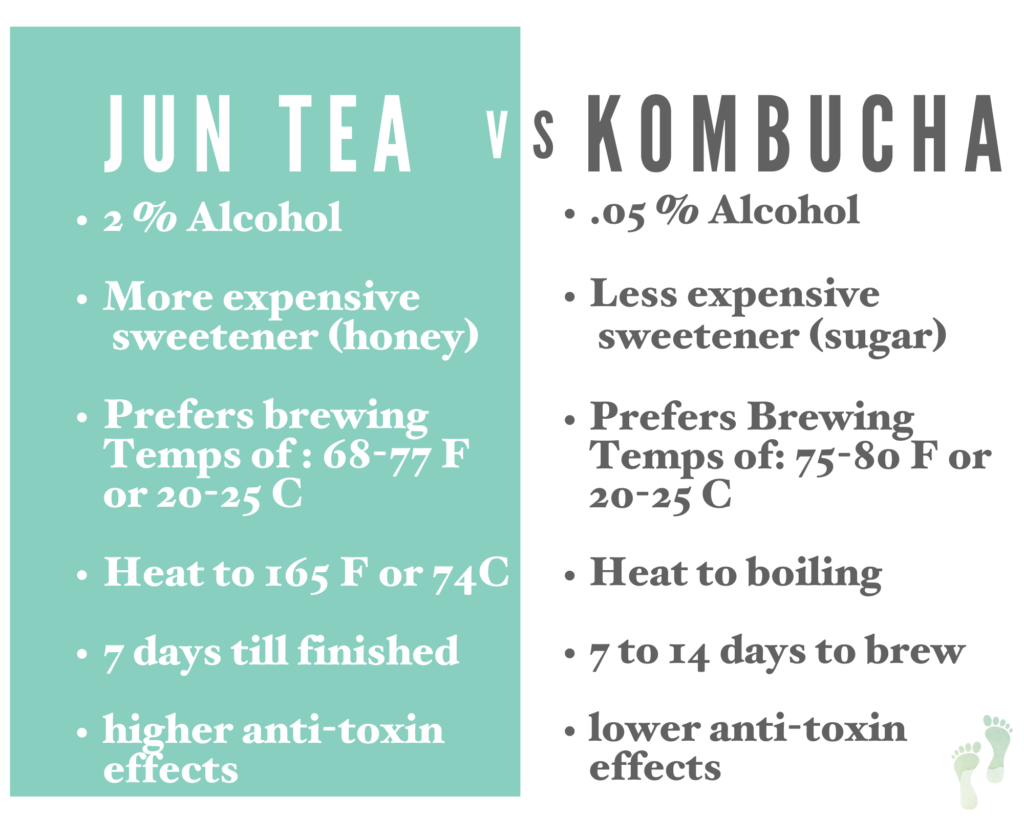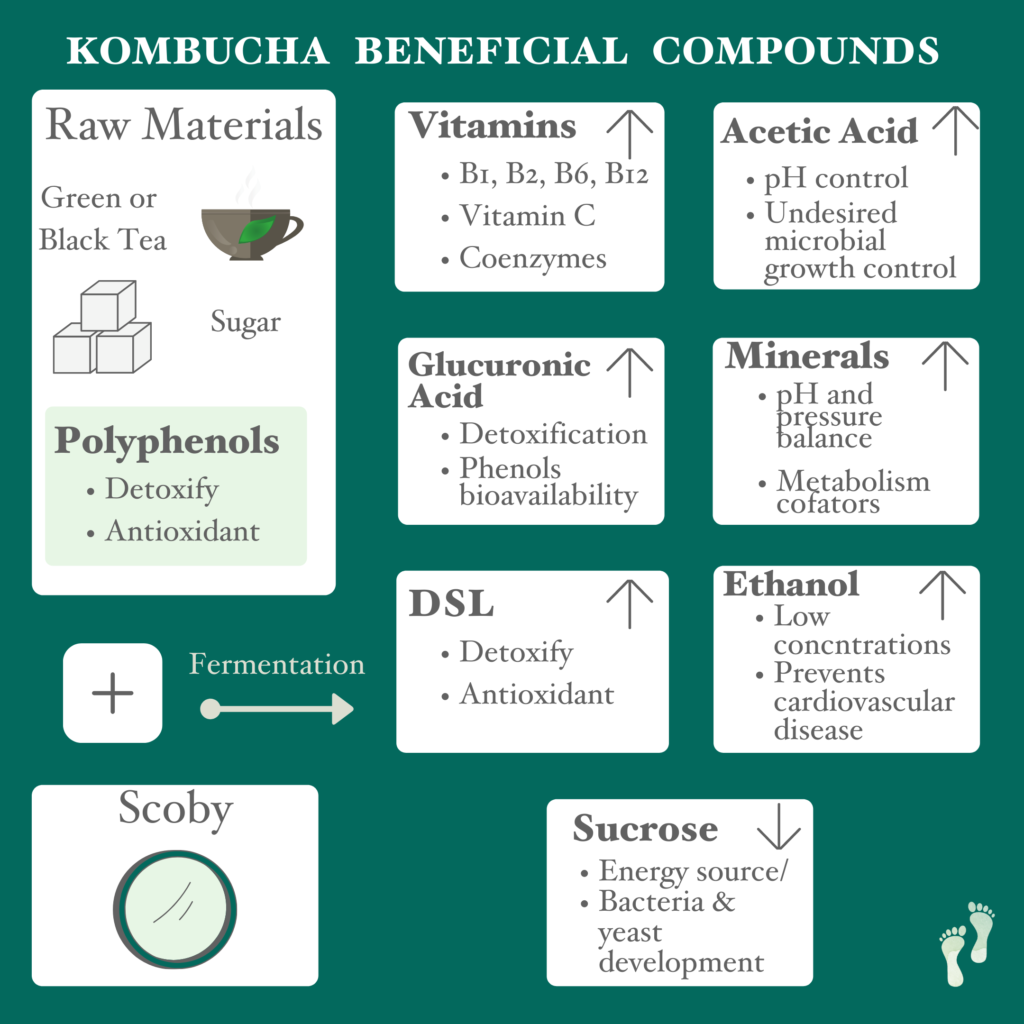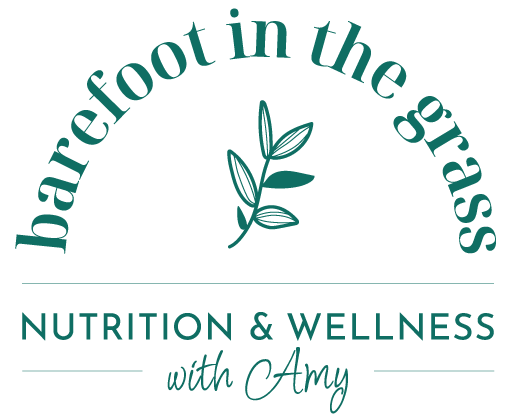
Today I want to explore the similarities and differences between Kombucha and Jun Tea and clue you up on the health giving effects of this wonder drink that surpasses green tea by a long shot. Both drinks are probiotic, gently detoxifying the body while giving a wonderful ‘pick me up’ due to their Vitamin B12 content. They are a compelling substitute for corn syrup or sugar-filled fizzy drinks. What are they? They are fermented beverages based on sweetened tea and a mother culture or ‘scoby’ as it’s often called which is an acronym for ‘Symbiotic Culture of Bacteria and Yeast’. The scoby looks a bit like a large mushroom and is made up from strong cellulose fibers made from bacteria and yeast. Yeasts living in the biofilm use the sugars in the tea to produce alcohol. This alcohol is then consumed by neighboring bacteria to produce acetic acid (vinegar). Sounds gross, but the result is very healthy for the gut, never mind delicious. As far as we know, these scobys originated in China and made their way to the Ural mountain region of Russia and finally brought to the West where it is now touted as a health drink – which it totally is! The main difference between Kombucha and Jun tea is that Kombucha is cultured from black tea and sugar and Jun tea is cultured from green tea and honey. Check out this graphic:

Jun Tea and Kombucha have slightly different preferences for brewing temperatures and times. Jun tea also retains slightly more alcohol than kombucha. Still, the amount in these beverages is comparable to the amount in an overripe banana! Kombucha has more glucuronic acid (see below) than Jun Tea while Jun Tea has higher ‘anti-toxin’ effects. They are both delicious, but if you prefer green tea, you’ll probably prefer Jun Tea. If you prefer black tea, you may prefer Kombucha. If even small amounts of sugar are a problem for you, Jun tea is your answer as it is made only with honey. If I were you, I’d try both and then decide!

Despite the fact that this drink has been consumed for thousands of years with absolutely glowing health reports ranging from better skin, healthier hair, more energy, to claims of longevity, U.S. based medical studies drone on about how there haven’t yet been human health studies done on the benefits of kombucha, so it’s questionable at best and risky at worst. (eye roll…) There have, however, been numerous studies done on the health effects of kombucha on animals which to me, in addition to its probiotic, vitamin, mineral, antioxidant and healthy acid content, is more than enough to be convinced.
Additionally, Numerous pre-cold war German and Russian studies have established kombucha to be a health elixir of note! Stories circulate that Russians villagers who survived the radiation of Chernobyl were people who brewed kombucha! Russians, post WW2 also completed a study to determine what grous of people were not getting cancer. It was villagers who were drinking kombucha!
Let’s take a look at the nutrition in these drinks:
- Water soluble B vitamins (B1, B2, B6, B12 (the energy vitamin!)) In 5L of kombucha, there are 74mg B1, 52mg of B6, 84mb of B12, 8.3mg B2 and 29 mg Vitamin C on the 10th day of fermentation. For reference, it’s about 20-25% daily required B Vitamins in one 8 oz. glass.
- Small amounts of trace minerals copper, iron, manganese, nickel, magnesium, potassium, sodium and zinc are found in kombucha.
- Increased polyphenol content over normal tea. Nearly %115 to %150 increases in polyphenols (antioxidants which are free-radical scavenging abilities) over normal tea.
- Detoxifying and antioxidant properties of DSL (D-saccharic acid-1,4-lactone)
- Due to ethanol content, kombucha has a protective effect against heart disease and bad cholesterol.
- Acids such as gluconic, acetic, lactic and citric acids have antimicrobial activity and improve sleep.
- Glucuronic acid, necessary for many body functions, has a detoxifying effect against drugs, chemicals, pollutants and steroids! It also plays a role in liver detoxification, increases polyphenols’ bioavailability preventing diseases related to oxidative stress. Additionally, it protects lipids from perixidation which happens in atherosclerosis, kidney damage and Parkinson’s. It is part of hyaluronic acid which serves as a lubricant and shock absorber. It’s part of chondroitin sulphate helping to keep collagen and connective fibres in a strong network, prevents joint problems and brings relief to osteoarthritis. (liver toxicity study on rats)
- Polyphenols regulate cholesterol metabolism and prevent high blood pressure.
- Reduction of cancer propagation based on polyphenols in tea (WOW!)
- Acetic acid and other organic acids possess antibacterial activity and prevent contamination of the drink by pathogenic bacteria.
- Main Source 1
- Main Source 2
To make it simple for you, I’ve recreated a graphic from the image on this study:

Additional Anecdotal (and Studied) Health Benefits
Further benefits of Kombucha and Jun Tea include:
* Reduction of blood sugar levels,
* Reduction of blood pressure,
* Improved immune system and
* Improved gastrointestinal functions.
* Prevents greying of hair
* Skin smoothness
FAQ’s
How much sugar or sweetener will be I be consuming in my finished brew?
Very little. The longer you brew it, the more sugar is consumed and therefore the more sour your brew will taste. It takes some time to figure out exactly how many days till your own brew is just the right sweetness and sourness for your personal taste. An 8 ounce (1 Cup) bottle of kombucha contains approximately 2 grams of sugar.
How much caffeine will I be consuming in my finished brew?
Very little as much of the caffeine is used up in the brewing process. However, kombucha will have slightly more than Jun Tea as it is made from black tea which has a higher caffeine content.
Are there any benefits to drinking homemade kombucha vs. store bought kombucha?
YES! Store-bought kombucha often have added flavors, sugar and even caffeine and may be pasteurized, destroying all those lovely enzymes and probiotics ! If you don’t know the brewer, making your own is a much better bet as you can control all the variables and be confident in your end product.
Do the enzymes or bacteria in raw honey interfere with the probiotic growth in Jun Tea?
No!
Can children drink these drinks?
Yes, they can and are encouraged to do so! However, because of the slight sugar and alcohol content, I’d offer it in small amounts (see suggestions below). It’s a wonderful replacement for sodas and fizzy drinks, but large quantities wouldn’t be advised.
A Bit of Caution and Words of Advice
The first time I tried kombucha, my stomach felt funny for several hours and I didn’t touch it again for several years! I wish I hadn’t waited that long. If you’ve got any kind of gut imbalance, the natural probiotics in the kombucha will work hard to change that situation, which could lead to a stomach detox of sorts. I’d recommend taking it slow and easy when you first start drinking it, helping your body adjust to it gradually. Start out with a 1/4 C or so and gradually work up to a cup or two a day. I’ve personally found that taking periods of time off and on with these drinks helps me feel best overall. Because it’s acidic, it can work at your teeth enamel, so be sure to swish your mouth out with water after drinking. However, don’t worry about making your stomach ‘acid’. These acids (as discussed earlier) are what bring on all the health effects in your body. Follow your body and your gut (pun intended) when drinking. CAUTION: If you have any pre-existing health conditions, IBS or a certain forms of candida, drinking it is not advised. Further considerations if your immune system isn’t up to par yet.
It’s Worth It!
All in all, I’d still say these drinks are worth trying to make with all the myriad of health benefits in mind. Hope you have a JUbilant day!




